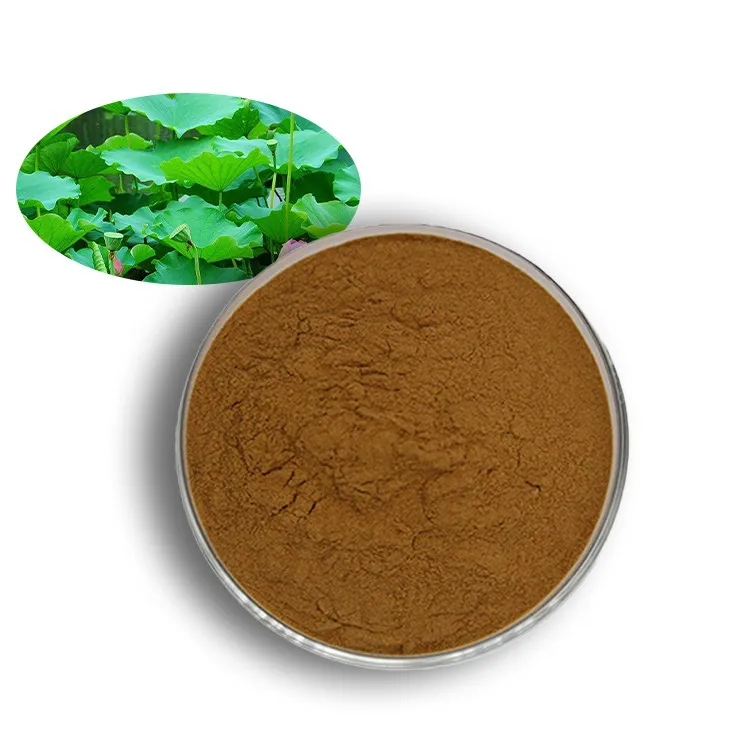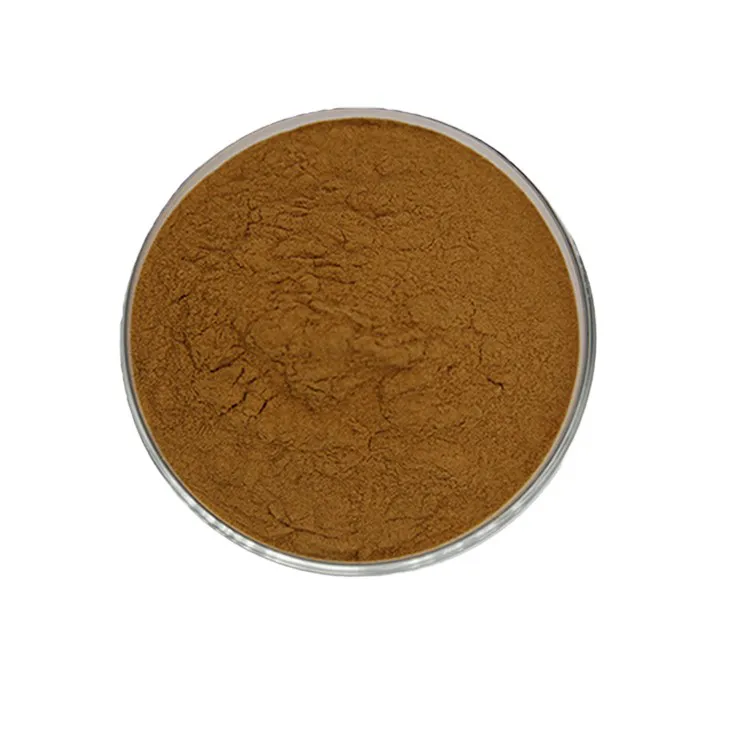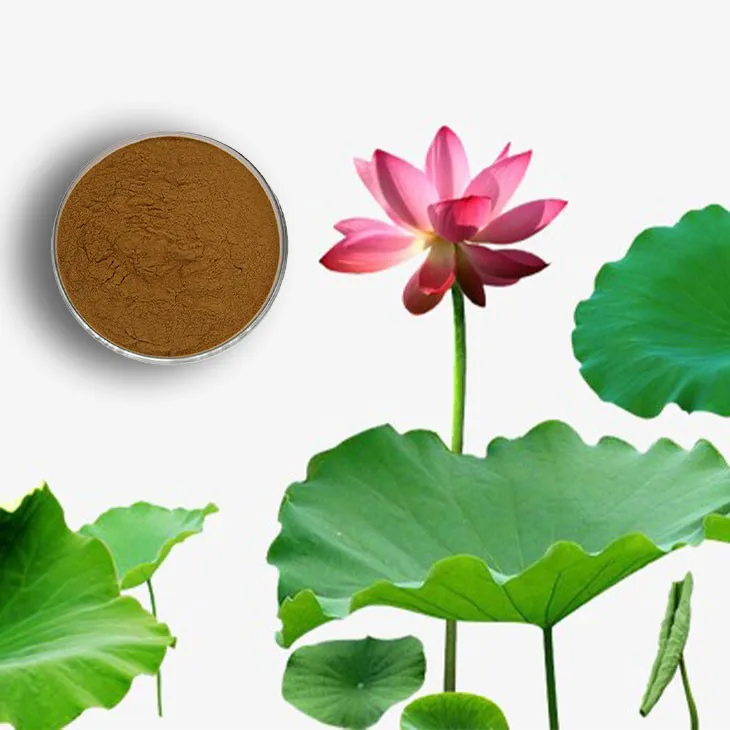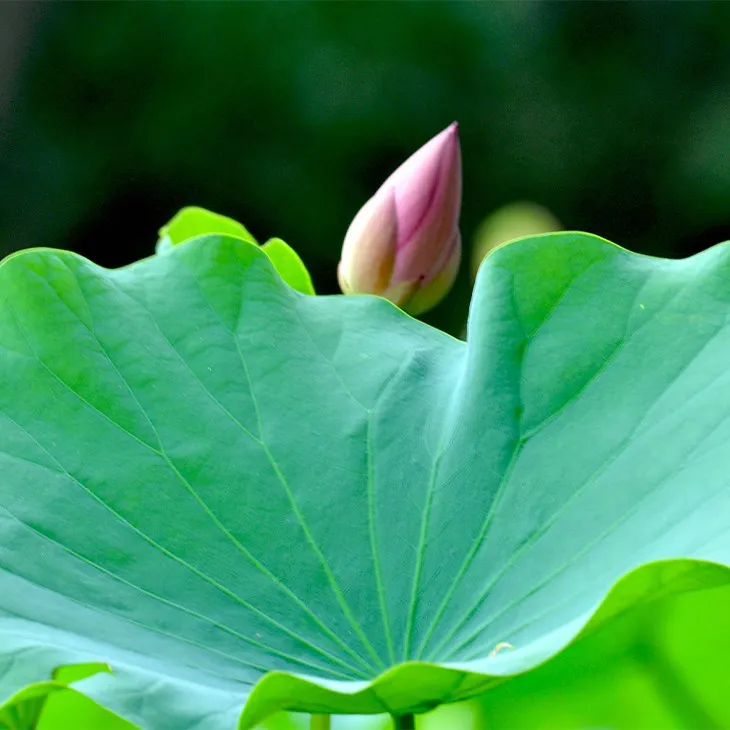- 0086-571-85302990
- sales@greenskybio.com
The Most Highly - Praised Lotus Leaf Extract.
2024-11-27

1. Introduction
The Most - Praised Lotus leaf extract is an amazing substance that has been drawing increasing attention in various fields. Lotus, a plant often associated with purity and beauty in many cultures, offers a treasure in the form of its leaf extract. This extract is not just a simple botanical product but a complex mixture with a wide range of potential applications.

2. Chemical Composition and Fragrance
The Lotus leaf extract contains a variety of bioactive compounds, which are the basis for its multiple functions. These compounds play a crucial role in determining its unique characteristics.
2.1 Bioactive Compounds
Among the bioactive compounds present in the Lotus leaf extract, flavonoids are a significant component. Flavonoids are known for their antioxidant properties, which help in protecting cells from oxidative damage. Another important group of compounds are alkaloids. These can have various physiological effects on the human body.
The presence of these bioactive compounds also gives the lotus leaf extract its unique fragrance. This fragrance is not only pleasant but also has potential applications in the perfume and aromatherapy industries. For example, in aromatherapy, the scent of lotus leaf extract can be used to create a relaxing and calming atmosphere.

3. Applications in the Food Industry
The lotus leaf extract has found a valuable place in the food industry, mainly due to its antimicrobial properties.
3.1 Natural Preservative
As a natural preservative, lotus leaf extract can prevent the growth of spoilage microorganisms. In a world where consumers are increasingly demanding natural and clean - label products, the use of lotus leaf extract as a preservative is a very attractive option.
For example, in the preservation of fruits and vegetables, the extract can inhibit the growth of bacteria and fungi that cause spoilage. This helps to extend the shelf - life of these perishable products without the need for synthetic preservatives, which may have potential health risks.

4. Pharmacological Activities
The lotus leaf extract has shown some remarkable activities related to cardiovascular protection.
4.1 Blood Pressure Regulation
One of the ways in which the lotus leaf extract may contribute to cardiovascular health is through its potential to lower blood pressure. Studies have suggested that certain compounds in the extract can act on the blood vessels, causing them to relax. This relaxation of blood vessels can lead to a reduction in blood pressure.
For example, in animal models, when given lotus leaf extract, there has been a significant decrease in systolic and diastolic blood pressure levels. However, more research is needed to fully understand the mechanisms involved and to determine the appropriate dosage for human use.
4.2 Cholesterol - Lowering Effects
Another aspect of its cardiovascular - protective properties is its potential to lower cholesterol levels. High cholesterol is a major risk factor for heart disease. The lotus leaf extract may interfere with the absorption or metabolism of cholesterol in the body.
Research has shown that it can reduce the levels of low - density lipoprotein (LDL) cholesterol, which is often referred to as "bad" cholesterol. At the same time, it may have a positive effect on high - density lipoprotein (HDL) cholesterol, which is considered "good" cholesterol.

5. Environmental Protection Applications
The lotus leaf extract has also been explored for its potential in water purification due to its adsorptive properties.
5.1 Adsorption of Pollutants
Water pollution is a global problem, and finding effective and sustainable solutions is crucial. The lotus leaf extract has shown the ability to adsorb certain pollutants from water. For example, it can adsorb heavy metals such as lead, mercury, and cadmium.
This adsorption occurs through the interaction between the bioactive compounds in the extract and the pollutants. The extract can form complexes with the heavy metals, thereby removing them from the water. In addition to heavy metals, it may also be able to adsorb organic pollutants, such as pesticides and dyes.
5.2 Comparison with Other Water Purification Methods
Compared to traditional water purification methods, such as chemical precipitation and filtration, the use of lotus leaf extract has some unique advantages. It is a natural and biodegradable material, which means that it does not leave behind harmful residues in the water. Moreover, it may be more cost - effective in some cases, especially in small - scale water purification applications.
However, it also has some limitations. For example, the adsorption capacity of the extract may be relatively low compared to some synthetic adsorbents. Therefore, further research is needed to improve its performance and make it more competitive in the field of water purification.
6. Future Research and Development
Despite the many potential applications of lotus leaf extract that have been discovered so far, there is still much room for future research and development.
6.1 Understanding the Mechanisms
One of the main areas of future research is to gain a deeper understanding of the mechanisms underlying the various functions of the lotus leaf extract. For example, in the case of its cardiovascular - protective effects, more research is needed to identify the specific compounds and pathways involved.
Similarly, in its applications in water purification, a better understanding of the adsorption mechanisms can help in optimizing the extraction process and improving the performance of the extract.
6.2 Product Development
Another aspect of future development is the creation of new products based on lotus leaf extract. In the food industry, this could involve the development of new food products with enhanced shelf - life and nutritional value. In the pharmaceutical industry, it could lead to the development of new drugs or nutraceuticals for cardiovascular health.
In the environmental protection field, new water purification systems or materials incorporating lotus leaf extract could be developed. These products could be designed to be more efficient, sustainable, and cost - effective.
7. Conclusion
The lotus leaf extract is truly a remarkable substance with a wide range of potential applications. From its use as a natural preservative in the food industry to its potential in cardiovascular protection and water purification, it offers many benefits. However, more research is needed to fully unlock its potential and to make it more widely applicable in various fields. With continued research and development, the lotus leaf extract has the potential to make significant contributions to human health, environmental protection, and the development of sustainable products.
FAQ:
What are the bioactive compounds in lotus leaf extract?
Lotus leaf extract contains a variety of bioactive compounds. These include flavonoids, alkaloids, and phenolic acids. Flavonoids contribute to its antioxidant properties, alkaloids may be related to its pharmacological activities, and phenolic acids can play a role in its antimicrobial function.
How does lotus leaf extract act as a natural preservative in the food industry?
It acts as a natural preservative in the food industry because of its antimicrobial properties. The bioactive compounds in lotus leaf extract can inhibit the growth of spoilage microorganisms such as bacteria, yeasts, and molds, thus extending the shelf life of food products.
What are the mechanisms by which lotus leaf extract helps lower blood pressure?
There are several possible mechanisms. One is that it may act on the vascular endothelium, promoting the release of nitric oxide which helps relax blood vessels. Another mechanism could be related to its effect on the renin - angiotensin - aldosterone system, reducing the production of substances that increase blood pressure.
How does lotus leaf extract contribute to cholesterol - level reduction?
Lotus leaf extract may contribute to cholesterol - level reduction by interfering with cholesterol absorption in the intestine. It may also enhance the metabolism of cholesterol in the liver, promoting the conversion of cholesterol into bile acids and its excretion from the body.
What are the adsorptive properties of lotus leaf extract in water purification?
The adsorptive properties of lotus leaf extract in water purification are mainly due to its chemical structure. The bioactive compounds can bind to pollutants such as heavy metals and organic contaminants in water. This binding process helps to remove these pollutants from water, making it cleaner.
Related literature
- The Chemical Constituents and Bioactivities of Lotus Leaf Extract"
- "Lotus Leaf Extract: A Promising Natural Preservative in Food"
- "Pharmacological Effects of Lotus Leaf Extract on Cardiovascular Health"
- "The Potential of Lotus Leaf Extract in Water Purification"
- ▶ Hesperidin
- ▶ Citrus Bioflavonoids
- ▶ Plant Extract
- ▶ lycopene
- ▶ Diosmin
- ▶ Grape seed extract
- ▶ Sea buckthorn Juice Powder
- ▶ Fruit Juice Powder
- ▶ Hops Extract
- ▶ Artichoke Extract
- ▶ Mushroom extract
- ▶ Astaxanthin
- ▶ Green Tea Extract
- ▶ Curcumin
- ▶ Horse Chestnut Extract
- ▶ Other Product
- ▶ Boswellia Serrata Extract
- ▶ Resveratrol
- ▶ Marigold Extract
- ▶ Grape Leaf Extract
- ▶ New Product
- ▶ Aminolevulinic acid
- ▶ Cranberry Extract
- ▶ Red Yeast Rice
- ▶ Red Wine Extract
-
Aminolevulinic acid
2024-11-27
-
Mulberry leaf Extract
2024-11-27
-
Hops Extract
2024-11-27
-
Phyllanthus Emblica Extract
2024-11-27
-
Natural grape seed extract
2024-11-27
-
Green coffee bean Extract
2024-11-27
-
Pine bark Extract Powder
2024-11-27
-
Coix Seed Extract
2024-11-27
-
Resveratrol extract
2024-11-27
-
Oyster Mushroom Extract Powder
2024-11-27





















